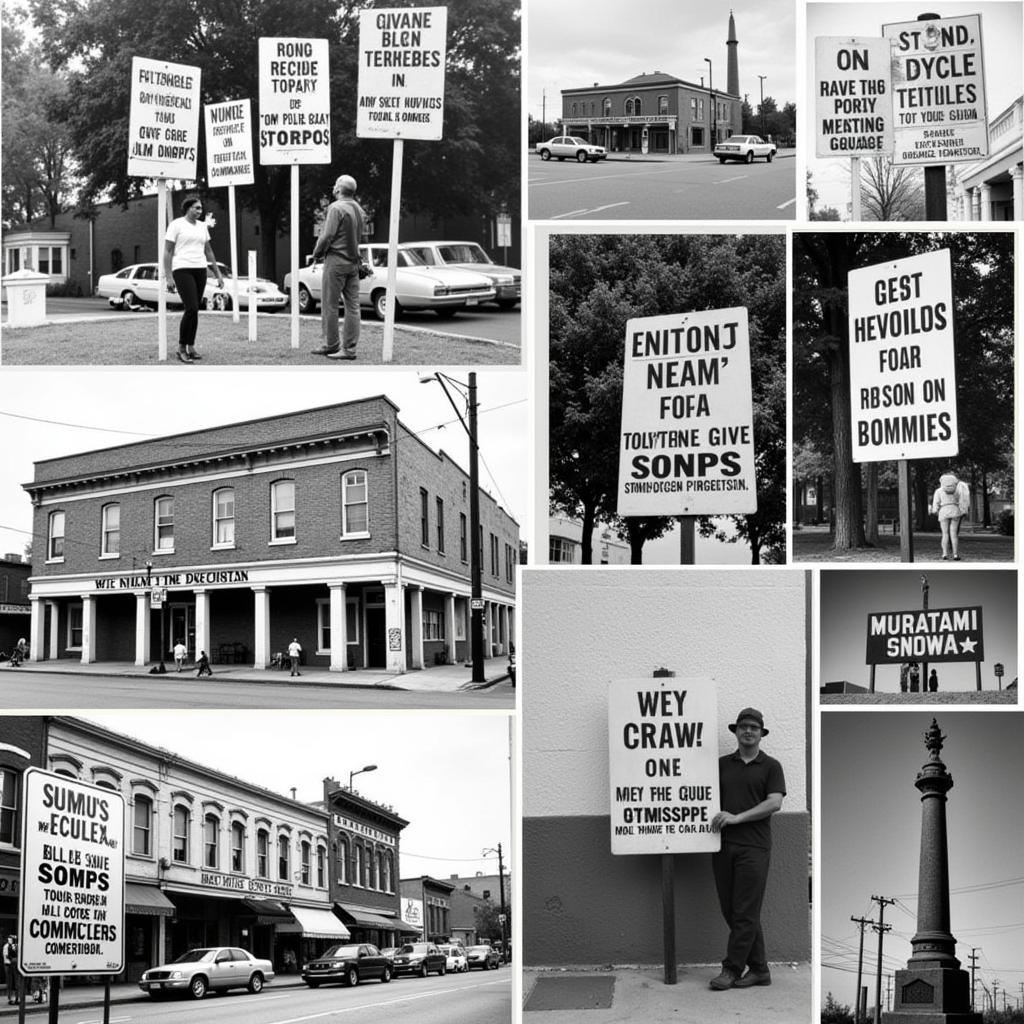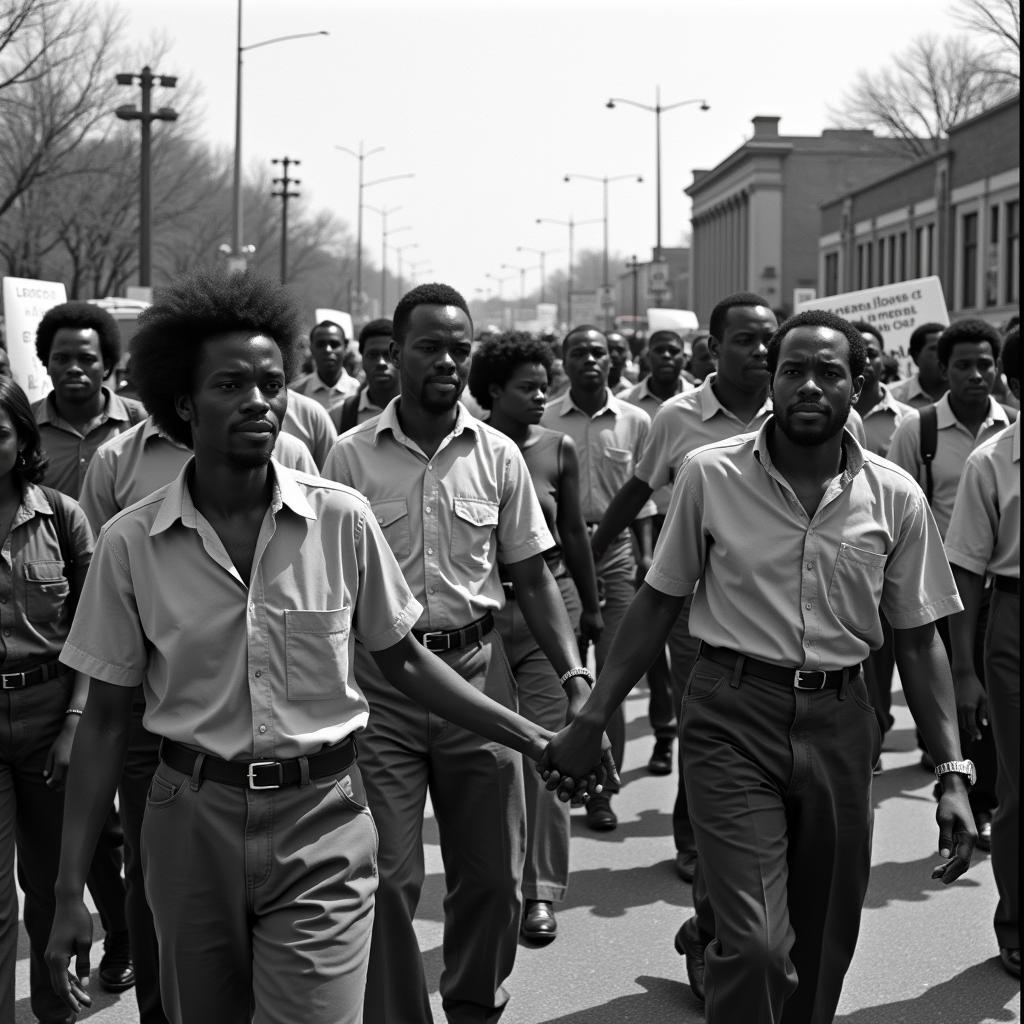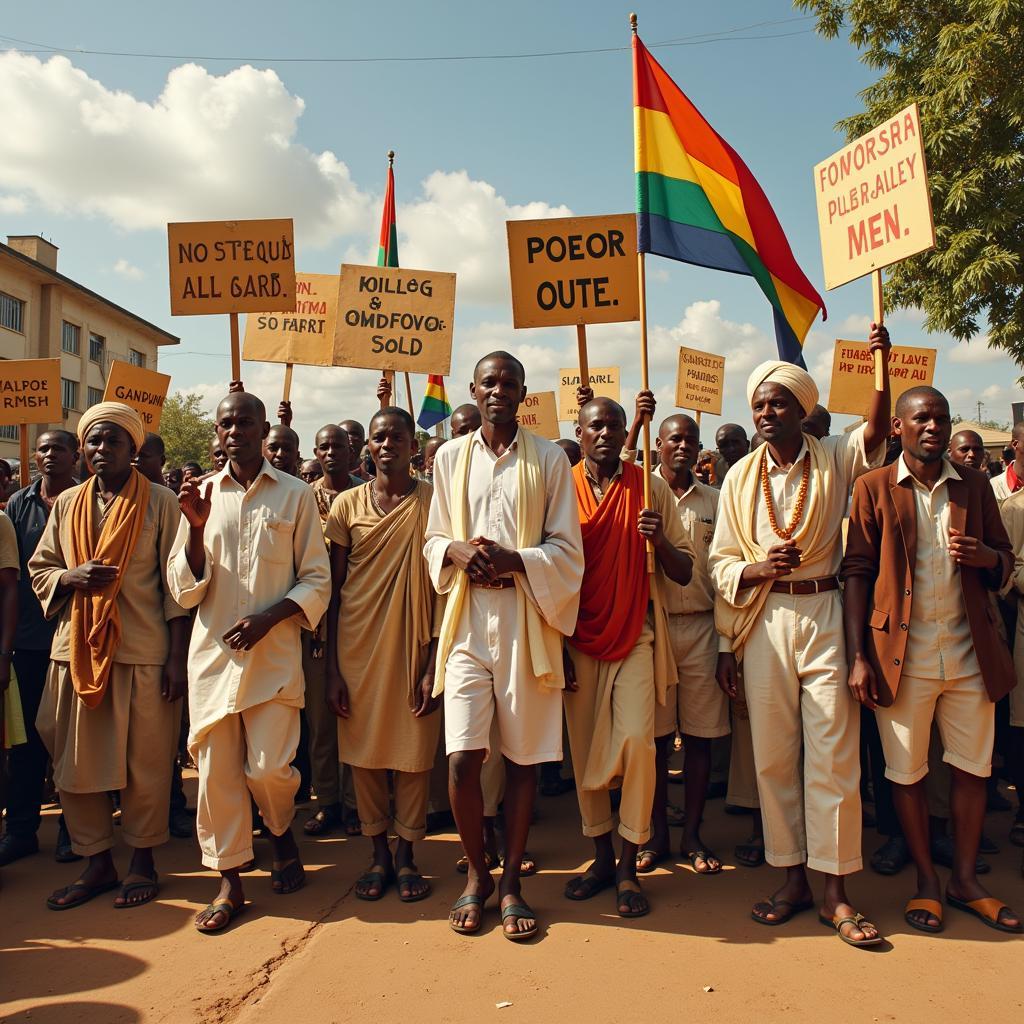African American History in Mississippi: A Legacy of Resilience
African American History In Mississippi is deeply intertwined with the state’s complex past, marked by both immense challenges and remarkable triumphs. From the arrival of the first enslaved Africans to the struggle for civil rights, the African American experience in Mississippi has profoundly shaped the state’s social, cultural, and political landscape.
The Antebellum Period: Enduring Slavery in the Cotton Kingdom
During the antebellum period (pre-Civil War), Mississippi became a leading cotton producer, fueling the demand for enslaved labor. The state’s economy relied heavily on the forced labor of African Americans, who endured brutal conditions on plantations. Despite the hardships they faced, enslaved people developed strong communities and cultural practices that provided solace and resistance. They expressed themselves through music, storytelling, and religious traditions, preserving their heritage amidst oppression.
Reconstruction and the Rise of Jim Crow
Following the Civil War, Reconstruction offered a glimmer of hope for African Americans in Mississippi. The period witnessed the ratification of the 13th, 14th, and 15th Amendments, abolishing slavery, granting citizenship, and guaranteeing voting rights. However, these newfound freedoms were short-lived. The rise of Jim Crow laws, designed to disenfranchise and segregate African Americans, ushered in an era of systemic racism and violence.
 Jim Crow Segregation Signs in Mississippi
Jim Crow Segregation Signs in Mississippi
How did Jim Crow laws impact African Americans in Mississippi?
Jim Crow laws permeated every aspect of life for African Americans in Mississippi, from access to education and employment to public accommodations and voting rights. These laws enforced racial segregation and relegated African Americans to second-class citizenship.
The Civil Rights Movement: Fighting for Equality
The mid-20th century witnessed the rise of the Civil Rights Movement, and Mississippi emerged as a pivotal battleground. African Americans in the state, along with activists from across the country, challenged segregation, voter suppression, and racial violence. Organizations like the NAACP and SNCC played instrumental roles in mobilizing communities and demanding equal rights.
What were some key events of the Civil Rights Movement in Mississippi?
- Emmett Till Lynching (1955): The brutal murder of 14-year-old Emmett Till for allegedly whistling at a white woman sparked national outrage and galvanized the Civil Rights Movement.
- Freedom Summer (1964): Hundreds of volunteers, many of them white college students, traveled to Mississippi to register black voters, facing fierce opposition and violence.
- Mississippi Burning Murders (1964): The murders of three civil rights workers—James Chaney, Andrew Goodman, and Michael Schwerner—by members of the Ku Klux Klan shocked the nation and exposed the brutality of white supremacy.
 Civil Rights March in Mississippi
Civil Rights March in Mississippi
The Legacy of Resilience and the Ongoing Struggle
African American history in Mississippi is a testament to the resilience, strength, and determination of a people who have endured centuries of oppression. From the cotton fields to the front lines of the Civil Rights Movement, African Americans in Mississippi have fought tirelessly for equality and justice. Their legacy continues to inspire generations to strive for a more just and equitable society. While significant progress has been made, the fight for racial equality in Mississippi and across the nation remains an ongoing struggle.

